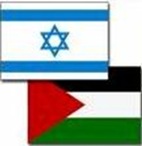Israel withdraws from Gaza City, debate truce details
 Gaza City /Tel Aviv - Israeli ground troops pulled back to the outskirts of Gaza City Friday, as Israeli officials were in Washington and once again Cairo Friday to work out the details of an agreement to end nearly three weeks of deadly fighting.
Gaza City /Tel Aviv - Israeli ground troops pulled back to the outskirts of Gaza City Friday, as Israeli officials were in Washington and once again Cairo Friday to work out the details of an agreement to end nearly three weeks of deadly fighting.
As the talks went on, the troops pushed toward al-Zahara, a town in the centre of the strip, sparking heavy gunbattles with local militants in the late afternoon.
At least 23 bodies were found amid widespread destruction in Tel el-Hawa in the morning, a day after the southern Gaza City neighbourhood witnessed the worst fighting in the city of 400,000 since Israel launched its ground invasion on January 3.
Focussing on relentless air attacks in the first week, Israel launched its Gaza offensive on December 27 in a bid to curb near-daily rocket and mortar from the strip at its south.
At least 14 Palestinians, including five militants and three children were killed Friday in airstrikes and tank shelling, Gaza emergency services chief Mo'aweya Hassanein said.
They raised the total Palestinian toll in the Gaza offensive to at least 1,141 killed and more than 5,130 injured. Thirteen Israelis have also been killed, including three civilians.
United Nations Secretary General Ban Ki-moon, in the West Bank city of Ramallah Friday for talks with Palestinian officials, reiterated that the situation in Gaza had become "unbearable" and urged Israel to declare an urgent unilateral humanitarian truce, before finalizing a long-term ceasefire in talks with Egypt and Washington.
Those talks, he nevertheless said, were "close" to reaching a truce and could come to fruition in "a couple of days."
"There is no time to lose. If we wait one more day, there will be more killings and destruction. The situation is just unbearable," he told a news conference with Palestinian caretaker Prime Minister Salam Fayyad. He also met with President Mahmoud Abbas.
Foreign Minister Tzipi Livni left Thursday night for the United States to sign an agreement on joint intelligence cooperation against weapons smuggling to Gaza, while Israeli negotiator, Amos Gilad, returned to Egypt Friday with instructions from caretaker Prime Minister Ehud Olmert, Defence Minister Ehud Barak and Livni.
He was to return from Cairo later in the day, but the security cabinet would likely only hold a vote after the Jewish Sabbath and was then expected to give Israel's final position on the Egyptian initiative.
Hamas, the Islamist Palestinian movement that controls the Gaza Strip, announced earlier this week that it had accepted the initiative in principal with certain reservations.
The Egyptian initiative calls for an immediate short-term "humanitarian" truce during which Egypt will lead indirect negotiations on a longer-term ceasefire, that should include guarantees against border security - an Israeli demand - and an end to the economic blockade of Gaza - a Hamas demand.
That short-term truce could last anything between five days to two weeks - during which the Israeli military would gradually withdraw from Gaza - while Hamas could accept a long-term truce of up to one year, though Israel would want a more permanent agreement.
The initiative also calls on Hamas and its bitter rival, the Fatah party of Palestinian President Mahmoud Abbas, to resume reconciliation talks.
Unconfirmed reports late Thursday suggested the short-term halt to hostilities in Gaza could start within 72 hours. However, some significant differences remain.
Khaled Meshaal, Hamas' Damascus-based political leader, said in Doha, at a summit of Arab leaders, that his organization would not accept Israeli dictates on the ceasefire, and that the militant group "had not suffered a defeat," in the Gaza fighting.
The stepped-up diplomacy came amid the worst day of fighting in Gaza Thursday in Israel's now 21-day offensive, in which Israel shelled a UN compound and damaged three hospitals, one extensively.
It also killed one of Hamas' top three leaders in Gaza and made the deepest advance into Gaza City yet, sparking intense battles with local militants little more than a kilometre from the heart of the city.
Hamas vowed to avenge the death of its de-facto Interior Minister Said Siam, who also headed its security forces, and declared Friday another "day of rage" calling for protests in the West Bank.
Some 3,000 Palestinians marched in Ramallah to protest Israel's offensive and called for West Bank-Gaza unity. Women also held up copies of the Koran, chanting slogans in support of Hamas, though for the first time in these weekly protests Abbas' security forces did not arrest the Islamists' supporters.
Protests also took place in Jerusalem and other West Bank cities, including Hebron were clashes between demonstrators throwing stones and Israeli forces resulted in the death of a 15-year-old, apparently from a rubber bullet.
As ground troops withdrew from Gaza City, the Israel Air Force kept up its attacks, striking 40 targets overnight and another 25 during the day.
Israeli conducted airstrikes against more than 2,000 targets in the past three weeks, while Palestinian militants fired over 700 rockets and mortar shells into Israel.
At least 16 rockets were fired Friday at southern Israel. (dpa)